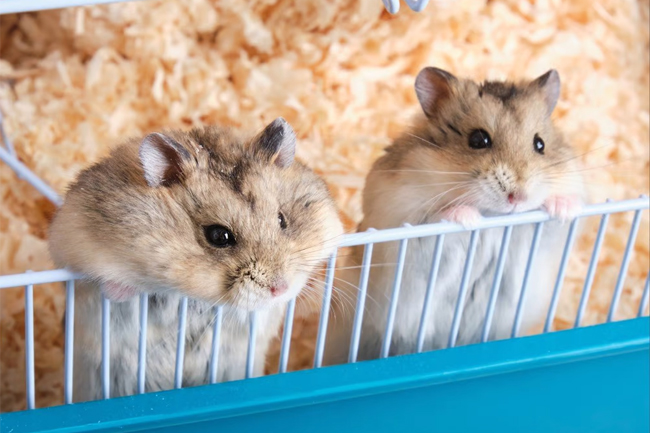Hong Kong to cull 2,000 hamsters after COVID-19 outbreak
January 19, 2022 03:17 pm
Hong Kong warned people not to kiss pets and ordered a mass cull of hamsters on Tuesday, to the outrage of animal lovers, after 11 of the rodents tested positive for COVID-19.
A recent coronavirus cluster in humans traced to a pet shop worker prompted checks on hundreds of animals in the Chinese-ruled territory, with 11 hamsters found infected, officials said.
Echoing the mainland’s zero-tolerance policy even as much of the world shifts to living with COVID, Hong Kong ordered 2,000 hamsters “humanely” put down, and imports and sales stopped.
Various pet shops were shuttered and disinfected around the city, while men in protective gear scoured the store at the heart of the cluster in the bustling Causeway Bay district.
The local Society for the Prevention of Cruelty to Animals, which runs veterinary clinics, urged a rethink.
“The SPCA is shocked and concerned over the recent government announcement on the handling of over 2,000 small animals, which did not take animal welfare and the human-animal bond into consideration,” it said.
Health Secretary Sophia Chan told a news conference authorities were acting out of caution even though there was no evidence domestic animals can infect humans.
“Pet owners should keep a good hygiene practice, including washing hands after touching the animals, handling their food or other items, and avoid kissing the animals,” Agriculture, Fisheries and Conservation Department director Leung Siu-fai Leung also told reporters.
Hong Kong has also been testing rabbits and chinchillas but only the hamsters were positive. They were all imported from the Netherlands, according to local broadcaster RTHK.
Around the world, there have been coronavirus cases in dogs and cats too, though scientists say there is no evidence animals play a major role in human contagion.
HAMSTER HOTLINE
Leung said the Hong Kong hamsters had to be put down as it was impossible to quarantine and observe each one. Buyers of hamsters after Dec. 22, 2021 should hand them to authorities for culling and not leave them on streets, he added.
A hotline for enquiries was being set up, while some 150 of the pet shop’s customers were going into quarantine, officials said.
Last September, three pet cats that tested positive for coronavirus were put down in the Chinese city of Harbin, bringing a social media backlash.
Elsewhere, Denmark culled millions of mink in 2020 to curb COVID-19 mutations. And some Russian regions have inoculated animals against COVID-19 after Moscow said it had registered the world’s first vaccine for animals following tests with dogs, cats, foxes and mink.
Nikolaus Osterrieder, dean of the Jockey Club College of Veterinary Medicine and Life Sciences at the City University of Hong Kong, said human-to-animal-to-human transmission chains are rare but do happen as with mink cases.
“It is obviously a drastic measure but one that is a consequence of zero Covid (rules),” he said of Hong Kong’s moves. “Hamsters are very susceptible to SARS-CoV-2 and can produce large amounts of virus.”
Global welfare group World Animal Protection said the measures were premature. “Culling animals should always be a last resort and we encourage governments to explore other options, such as quarantine, first,” said research head Jan Schmidt-Burbach.
After three months without any local transmission, Hong Kong has seen dozens of new coronavirus cases in humans this year, triggering fresh curbs on flights and social life.
Thousands of people have been sent to a makeshift government quarantine facility. Most of the new cases are of the highly-contagious new Omicron variety, though the cluster traced to a pet shop worker was Delta.
Source: Reuters
-Agencies














